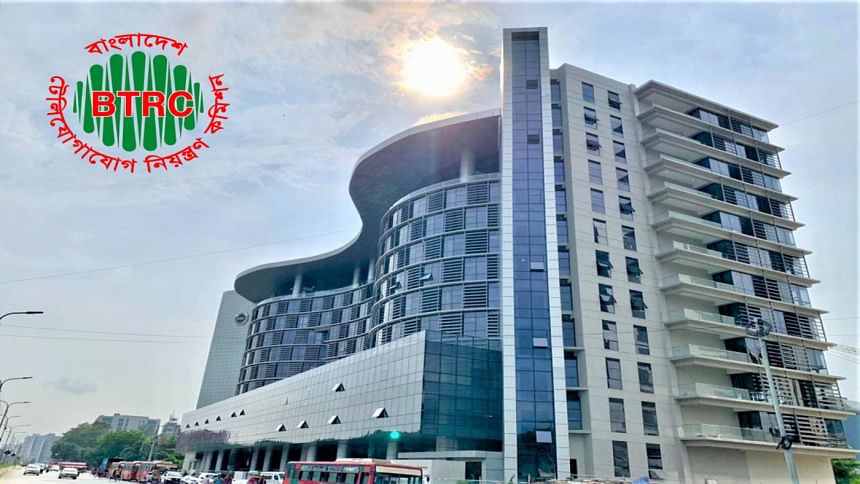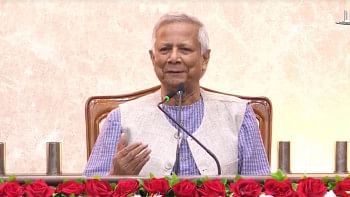BTRC allows two more firms to make handsets locally

The telecom regulator of Bangladesh recently permitted two more local companies to manufacture and assemble mobile handsets, with the move coming amid a downturn in overall sales and production.
And with the addition of these two -- Salextra Limited and Halima Mobile Industries -- there are now 17 mobile handset makers in the country.
However, the Cumilla-based Halima Mobile Industries, an arm of Halima Group, is yet to begin production due to difficulties in opening letters of credit.
On the other hand, Salextra Limited is already churning out Nokia-branded smartphones and feature phones at its Gazipur unit.
In 2021, Vibrant Software (BD) Ltd, a joint venture of the UK's Vibrant Software and Bangladesh's Union Group, became the first to get approval for assembling Nokia devices and set up a factory to this end.
And using its arm Cellular Mobile (Pte) Limited (CMPL), Union Group was the first to import Nokia devices to the country in 1996.
However, the company's journey in local manufacturing of Nokia devices came to an end last year due to a dispute between the partnering companies.
Shakib Arafat, managing director at Salextra, said they are a local tech-device manufacturing startup.
"We recently received a license from the BTRC and partnered with HMD Global. We are now a manufacturer and distributor of Nokia-branded phones in Bangladesh," he added.
HMD Global, a company set up by former executives of Nokia and Microsoft, secured a licence for the marketing and manufacturing of Nokia in 2016.
"At our 54,000 square feet plant, we are now assembling Nokia phones and will go for manufacturing soon," Arafat said.
He also said Salextra was launched in 2020 as a startup with only 5 employees and the number has since risen to nearly 500.
Apart from its partnership with Nokia, the company also produces smartwatches, neckband headphones, earbuds and other gadgets.
"We have the capacity to produce 3 lakh feature phones and smartphones on six production lines. A total of 370 people are employed by our mobile operations, with 40 percent being women," he added.
Salextra has already sold about 1.7 lakh Nokia handsets in the local market over the past month.
Meanwhile, Halima Group, which produces mobile accessories such as chargers, batteries, power banks and feature phones for other vendors, will now make feature phones of their own brand.
With the approval, the company will focus on mainly producing feature phones and plans to eventually produce smartphones too.
"We are planning to design a smartphone but we need more time for that," said Ezaz Hossain Khan Joy, assistant general manager for mobile operations of Halima Mobile Industries.
The company now employs about 130 people at its plant, which has three assembly lines with the capacity of producing 7,000 mobile phones each day.
"About 90 percent of the employees are women," Joy added.
However, production has yet to start as the unit is suffering from raw material shortages due to difficulties in opening letters of credit.
"It will take some time to bring the materials," Joy said.
The difficulty in opening letters of credit has been prevalent for mobile manufactures over the past year, impacting the entire supply chain, according to industry people.
Besides, local handset production dropped in 2023, marking its first decline since domestic production began in 2017, owing to a rise in the value of the US dollar alongside taxes and lower sales amid erosion of peoples' purchasing power.
Domestic firms produced 2.33 crore mobile phones last year, down 26.35 percent year-on-year, according to the Bangladesh Telecommunication Regulatory Commission (BTRC).
Consumer spending has also been tightened significantly owing to persistently higher inflation for the past two years while the expanding grey market poses another threat to the industry.
The production of handsets in Bangladesh made impressive strides in recent years, aided by huge tax benefits unveiled by the government in fiscal year 2017-18.
In the latter half of 2017, when Bangladesh allowed local manufacturing by offering a huge amount of tax benefits, only 40,000 cellphones were produced by local firm Walton.
But things started to accelerate the following year as local entities engaged in deals with top global brands, including Samsung, Tecno and Symphony, to set up manufacturing facilities in Bangladesh.
A total of 15 plants have so far been established in the country, producing 10.35 crore handsets as of 2022, according to the BTRC, which provides manufacturing permits.

 For all latest news, follow The Daily Star's Google News channel.
For all latest news, follow The Daily Star's Google News channel. 



Comments